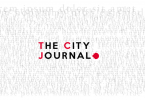COVID-19 is discouraging Australians from visiting their doctor and getting tested for life-threatening diseases, according to data released by the MBS and Australian Institute of Health and Welfare.
In May 2020, the Australian Heart Foundation analysed data released by the Medicare Benefits Schedule (MBS). It indicated almost 96,000 less GP appointments were booked for disease management, compared to the year before.
Along with a decline in doctor appointments, Australians are postponing important cancer screenings, or having them pushed back due to COVID-19 restrictions. A report from the Australian Institute of Health and Welfare , revealed an 18 per cent drop in mammograms nationally from 2018 to 2020.
2020’s mammogram numbers show decline in testing since start of the pandemic, one icon representing 800 women
It is expected for the number of tests to drop again this year, with NSW announcing the indefinite closure of many public breast screening clinics. This announcement has worried many women, concerned that pushing back their mammograms will be the difference between life and death.
Kerri Besanko, a breast cancer survivor, knows all too well the importance of getting tested. Ms Besanko, from Melbourne, was diagnosed with stage three breast cancer in October 2019. She has undergone chemotherapy and surgery during the pandemic.
“It is concerning if screening clinics are being shut down, I understand redeployment is necessary in certain areas but cancer won’t stop because of this pandemic,” Ms Besanko said.
Mammograms are not the only tests seeing drops, with cervical and bowel cancer tests suggesting the pandemic has impacted other screenings. In 2020, cervical cancer tests saw an alarming 57 per cent decrease, with bowel cancer kit returns showing a 19 per cent decrease compared to the year prior.
This drop in test numbers mean undiagnosed Australians could discover their cancer too late due to restrictions and hesitancy. A survey of the Australian public for RMIT City Journal, shows 72.5 per cent of participants believe the pandemic has made it harder to access medical care.
“We are bombarded with being told how stretched our health system and its workers are, and so I would understand the reluctance to come forward as to not be a burden on anyone,” Ms Besanko said.
However, her advice to those worried about their health is to visit their doctor, as soon as possible. “This is your health and you deserve to have health care made available to you, you can’t afford to delay your treatment.”







